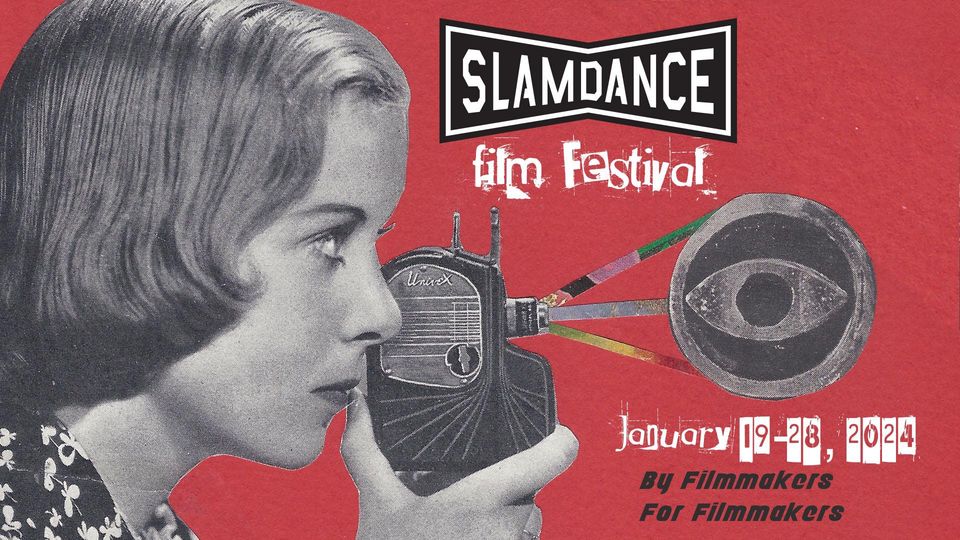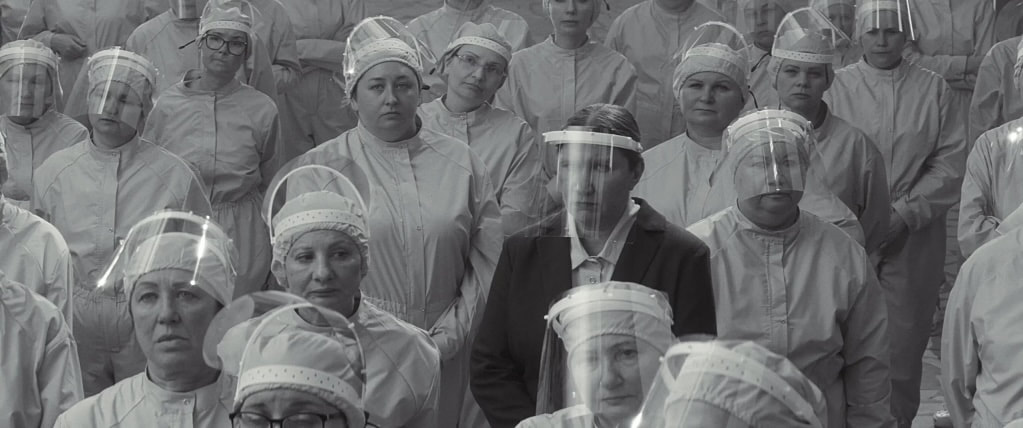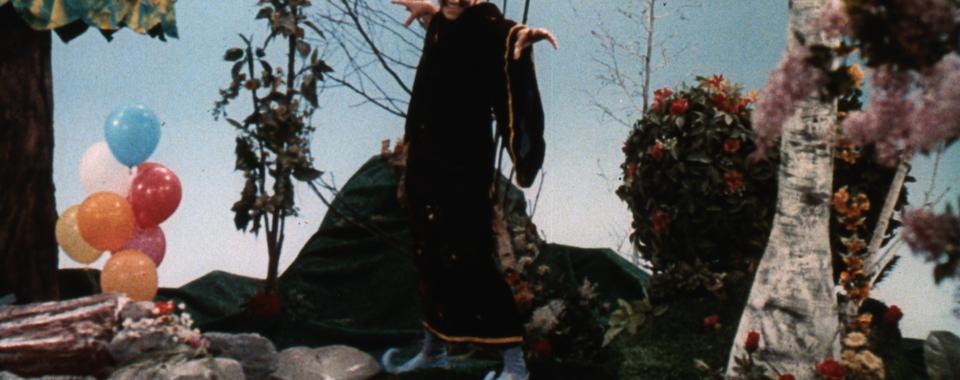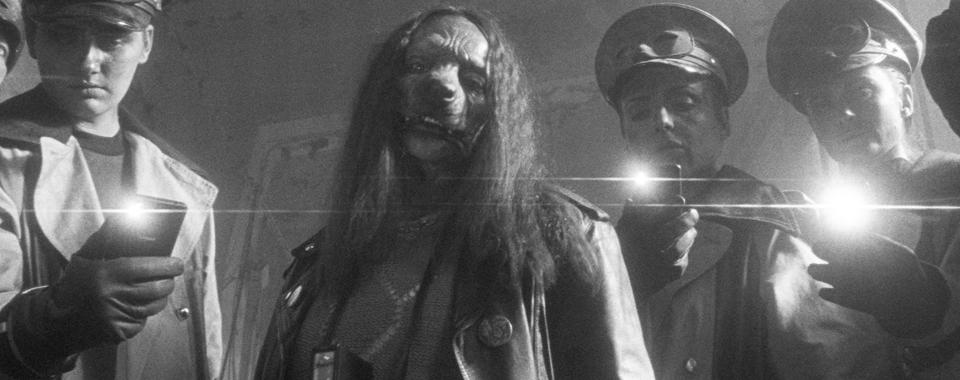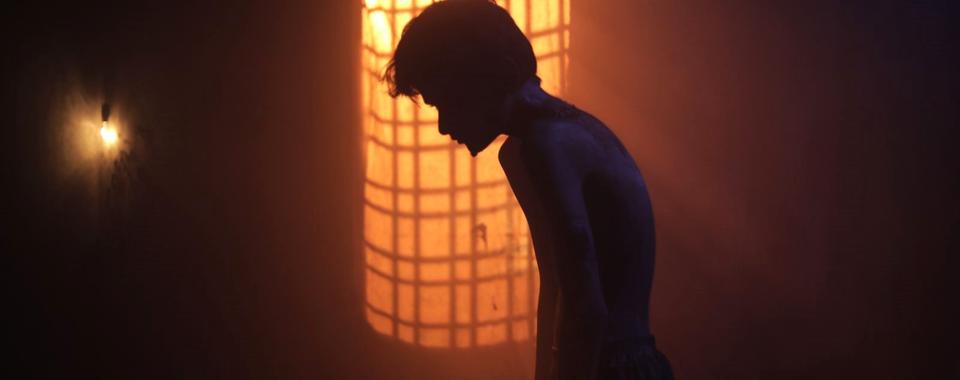|
By Daniel Lima and Sean Boelman
Slamdance has long been known as the “indie-r cousin” of Sundance, as it happens at the same time as the higher-profile festival in its mountain home of Park City, Utah. However, Slamdance has made a name for itself as a platform for up-and-coming filmmakers from around the world to showcase their edgy, experimental, and — most of all — independent visions.
We at disappointment media covered the 2024 edition of Slamdance remotely. Here are a few of the films we saw in the festival lineup and our thoughts on them:
Reviews by Daniel Lima
Anna's Feelings
Whoever thought there was enough here to sustain one hundred and thirty minutes of screentime should be criminally prosecuted. Anna’s Feelings is about a factory worker in a small Russian town who begins to hear aliens speaking to her, disrupting the lives of her entire family. This is a formulaic indie dramedy, predictable to the point of parody, shuffling along at such a laborious pace that one is fooled into expecting some subversion or deeper meaning. There is none. It's a shame to see Anna Mikhalkova’s great performance so wasted.
Darla in Space
There are two ways a film about a woman who discovers a kombucha mother that grants transcendental orgasms can go: absolutely bonkers in embracing a premise so strange or disappointingly milquetoast as it slowly reveals that the filmmakers only thought as far as that premise. Darla in Space, unfortunately, is the latter, content with coasting on the charms of the lead actress and the voice performance of the mother without ever actually coalescing into being actually about anything. That lack of vision is perfectly exemplified by the lazy AI-generated images meant to capture how those orgasms feel.
Hell of SE
I would be lying if I said I knew, at any point, what the hell was going on in Hell of SE. As far as I can tell, it is a meandering, opaque portrait of youthful angst and ennui. Yet it’s hard to find fault in director Sawa Kawakami’s deliberately experimental style, actively challenging not only the audience but also her own capabilities. The disaffected performances, shooting the film on formats including MiniDV and the Nintendo 3DS, it’s genuinely exciting to see a filmmaker who actively tries to make such an abrasive feature debut — even if it is impossible to decipher.
Reviews by Sean Boelman
Invisible Nation
Slamdance’s documentaries tend to be much more polished than the festival’s narrative features, and the closing night selection of the festival, Vanessa Hope’s Invisible Nation, is a very sleekly directed film. Although the documentary is primarily about the election and term of Taiwanese President Tsai Ing-wen, it uses this as a starting point to ask many big questions. In many ways, the film almost works better as an exploration of the overall merits of democratic government than a biography of this particular political figure, but Hope mostly does a great job of tying together the story with its historical background and broader implications.
Petro
The interesting thing about Petro is that there’s another documentary about the same election, from the side of another candidate, playing at the *other* Park City festival. Of course, it’s hard not to compare the two, but they’re on surprisingly equal ground. This portrait of Colombian President Gustavo Petro (spoiler alert, he was the victor) is a mostly straightforward biographical documentary. With a strong mix of archive footage, talking head interviews, and fly-on-the-wall footage — with an astounding level of access to Petro himself — the documentary offers a mostly compelling look at the political landscape of Colombia. Unfortunately, it fails to connect this to the big picture in a way that makes it feel like essential viewing.
The 2024 Slamdance Film Festival ran January 19-25 in-person in Park City, UT and online from January 22-28.
0 Comments
By Daniel Lima Before he became known for action movies starring the likes of Chuck Norris, Steven Seagal, and Harrison Ford, director Andrew Davis made his debut with a small-scale, intimate love letter to the musical scene of Chicago. Stony Island, named for the South Side street its characters call home, is a remarkably raw and passionate film that captures the particular verve of its time and place. The story of an R&B band assembling and attempting to land its first gig, the film is based on the experiences of the director and his brother, one of the stars. The two grew up on the South Side as it went from a predominately white to a predominately black neighborhood, exposing them to Black culture broadly — specifically Black music. Their upbringing gave them keyed them into the universality of the music, how it dissolves racial divisions in the face of its emotional power, and that is well reflected in the world of the movie. The urban landscape of late ‘70s Chicago is beautifully photographed. Davis’ first job as cinematographer was on Haskell Wexler’s docudrama Medium Cool, and the influence of his guerrilla shooting style is evident here. Each shot has a candid feel, a sense of immediacy that roots you in the gritty milieu of the South Side. Harsh blue lighting reflects the cold Midwest air and lends each frame a certain downtrodden feel. It’s the kind of textured visual style you rarely see today, as good an argument for the power of film as any. A low-budget independent production doesn’t have the luxury of licensing music, so every musical performance is an original. Spanning the black musical tradition from blues to jazz to soul, from Chicago down to Louisiana, the songs here are incredible to a one, from funeral ballads to rousing big band numbers with hastily improvised lyrics. It is clear that Davis and his cast — most of whom were actual musicians — have a deep appreciation for this music, which shines through every note played.
That is crucial to the film, as the actual narrative is thin. The band is assembled piece by piece, recruiting players and acquiring equipment, and there are some developments in the personal lives of the members, but there is no real dramatic tension or momentum. Stony Island is certainly an engrossing watch, but not because of the story. What makes Stony Island such a captivating watch is how full of life it is. The enthusiasm of each of the actors, giving incredibly naturalistic performances, bleeds onto the grimy milieu that surrounds them. The excitement of a jam session in a dilapidated building; blossoming young love against the backdrop of lions in stark, empty cages; a triumphant gig witnessed by all the people who came together to make it happen. Such pains were taken to organically flesh out this world, to make it extend beyond the confines of the frame. That effort allows the film to act as both a time capsule of the era and a wonderfully idiosyncratic portrait of artists coming together to make something beautiful. Stony Island is now playing in theaters for its 45th anniversary.
By Sean Boelman, Daniel Lima, and Erin M. Brady
Fantastic Fest, occurring in Austin, Texas each September, is known as one of the most reputable genre festivals in the world, bringing together cinephiles from around the world to celebrate the latest in weird and macabre cinema.
We at disappointment media were excited to again cover the festival remotely. Here are some of our brief thoughts on some of the films that played at this year's festival: The Animal Kingdom
Review by Sean Boelman
That the fantasy film The Animal Kingdom was even considered for the short list for France's submission for the Best International Film Oscar in the same breath as such movies as Anatomy of a Fall and eventual selection The Taste of Things is frankly baffling — especially when you realize it's not great. Although Thomas Cailley's film has plenty of interesting ideas, its allegories (yes, plural) are muddled down by one another, and the CGI is lackluster, resulting in an experience that is frequently frustrating rather than provocative. The movie also wastes its cast, including the talented Romain Duris and Adèle Exarchopolous — yet another example of this disappoiting film not living up to its potential.
The Coffee Table
Review by Daniel Lima
Where does a story go when it begins with its most shocking reveal? In the case of The Coffee Table, nowhere. A married couple purchases a grotesque coffee table, only to lead to disaster. The film immediately plays its only card, and all it has left to do is remind the audience of the card it played until the credits roll. As shocking as that moment is, it hangs over the rest of the movie, stymieing any attempt to deepen the characters or get the audience invested in what follows. In spite of that, the ensemble is impressive, particularly Estefanía de los Santos. A shame to see them go to waste.
The Cult of AGFA Trailer Show
Review by Erin M. Brady
If you've ever wanted that warm feeling of watching previews to last 80 minutes, then The Cult of AGFA Trailer Show is exactly the movie you need. The editing done for each real-life trailer and theatrical bumper is minimal, yet impactful in conveying the breadth of cult cinema — classics like The Doom Generation and forgotten exploitation fare such as The Other Side of Madness get their equal spotlight. It may not be the most exciting film at Fantastic Fest, but it does go to show how important the genre film, in all its various forms, can be in these times of studio greed and blockbuster fatigue.
Mushrooms
Review by Daniel Lima
An old woman foraging through a Polish forest happens upon a young couple, dressed in strange garb, who claim to be lost. The woman doesn’t seem to trust them, and vice versa. For the next hour it’s left to the audience to puzzle out what exactly either party wants from the other. The mystery of Mushrooms is fun to work out at first, in large part because of the trio of solid performances. However, once it becomes clear the film will merely idle forward until the final reveal, it becomes tedious. That ultimate reveal is either a brilliant stroke that meaningfully recontextualizes the entire movie, or heinous and exploitative. At the moment, I lean towards the latter.
Kill Dolly Kill
Review by Erin M. Brady
It's difficult to objectively review any Troma film in the traditional sense. If you're looking for that to change with Kill Dolly Kill, you're sorely mistaken. The signature Troma low-budget sleaze is still oozing from every scene, and the over-the-top performances and writing sell this. However, there's only so much that can be done to stretch out one joke, and two poorly-choreographed lesbian sex scenes don't mask this issue.
One-Percenter
Review by Daniel Lima
Another collaboration between director Yudai Yamaguchi, star Tak Sakaguchi, and action choreographer Kensuke Sonomura, One-Percenter is both a biting satire and loving ode to action cinema. Sakaguchi plays an action star location scouting for the true-to-life action epic he’s always dreamed of, who stumbles onto an attempted yakuza execution and decides to intercede. What follows is some of the most electrifying fights of the year, with a fluidity, grace, and kineticism that is jaw-dropping. Many references are made to both Sakaguchi’s career and the Japanese action film industry, and the philosophical underpinnings of Tak’s own perspective of his craft make the beautifully orchestrated violence all the more powerful.
She Is Conann
Review by Erin M. Brady
Much like experimentalist Bertrand Mandico's previous work, it's difficult to explain the appeal of his latest, She is Conann. A showcase of the hero's journey gone mad, the film outlines the life of a female barbarian who's lived as many lives as she's brutally taken. Unfortunately, in its attempts to juggle various societal woes (fascism, performative femininity, and capitalist-funded art among others), none of them come together to elevate it beyond the admittedly stunning visuals. You admire it and what it sets out to do, rather than actually like it. Maybe that's the point, but it's still disappointing to see such an ambitious film cannibalize itself.
Sri Asih: The Warrior
Review by Daniel Lima
The second film in the Bumilangit Cinematic Universe, an attempt at a superhero franchise out of Indonesia, Sri Asih: The Warrior bodes ill for the future of the series. A generic story about a woman who is a reincarnated goddess fated to save the world, the film suffers from a bloated narrative that refuses any impulse to build its characters or world, beyond merely baiting future installments. The commentary on economic inequality embarrassingly is shallow, and the low-budget Wonder Woman knockoff action is ugly as sin, particularly compared to the solid, grounded fights at the start of the film.
Suburban Tale
Review by Daniel Lima
The directorial debut of Stephen Alexander, Suburban Tale, follows a distressed young woman who is called back home by her estranged family to help care for a demon-possessed boy as the family prepares for a wedding. She slowly begins to exhibit signs of sickness, beginning a surreal, nightmarish descent into her own psyche. The practical effects work is commendable, and star Rashmi Somvanshi gives a dynamic performance, but the film is so coy with who she is that by the time that revelation arrives, it is impossible to connect with her.
You're Not Me
Review by Erin M. Brady
Christmas seems to be a recurring theme during this year's Fantastic Fest, and You're Not Me sets out to showcase the most wonderful time of the year as the worst. Marisa Crespo and Moisés Romera's film is an oftentimes engaging look into the horrors of an unsupportive family. Its lead character is a lesbian who ran away from her wedding to a man three years prior. However, it begins to lose momentum once it moves into a muddied immigration parable, before ultimately crashing in its final moments. It's a shame, too, as its well-done pacing and direction will make you anticipate a payoff that never actually comes.
The 2023 Fantastic Fest ran September 21-28 in Austin, Texas.
|
The Snake HoleRetrospectives, opinion pieces, awards commentary, personal essays, and any other type of article that isn't a traditional review or interview. Archives
June 2024
Categories
All
|
|
|
disappointment media
Dedicated to unique and diverse perspectives on cinema! |

